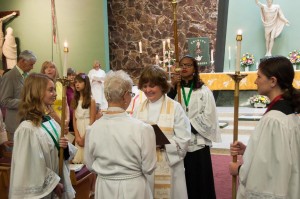What would you say is the overall point of the Bible? Let’s be careful how we answer that question, because too often we expect the Bible to  do something not in its job description. The clever signs describing the Bible as “Life’s Rule Book” or “Basic Instructions Before Leaving Earth,” don’t help. If that’s all the Bible is about, then we could edit a great deal of it away. Indeed we probably want to because most of it doesn’t assist in those tasks at all. For the last century or so Christians have gotten caught up in a fruitless effort to demonstrate the perfection of the Bible, both historically and ethically. Perhaps if we could prove its infallible reliability, it would make more sense?
do something not in its job description. The clever signs describing the Bible as “Life’s Rule Book” or “Basic Instructions Before Leaving Earth,” don’t help. If that’s all the Bible is about, then we could edit a great deal of it away. Indeed we probably want to because most of it doesn’t assist in those tasks at all. For the last century or so Christians have gotten caught up in a fruitless effort to demonstrate the perfection of the Bible, both historically and ethically. Perhaps if we could prove its infallible reliability, it would make more sense?
Instead, let’s see the Bible for what it so obviously is–a collection of books written by different people. These books, at least most of them, aren’t simply rules, they tell stories. True, the stories are often grounded in rules, but there’s a reason why we don’t have just a book of laws. Even the laws are found in the context of a story. Story is the common theme because the Bible is the story of God’s revelation. The Bible doesn’t tell us about a god who says everything about himself at one sitting. Rather the story travels through centuries of revelation, leading to an ever more complex theology and a deeper understanding of who God is. Yes, we worship the God of Abraham, Isaac and Jacob, but no, this isn’t your forefathers’ religion.
The ongoing revelation of Scripture is the theme of the Rector’s Forum. We have reached a critical junction in that story with the stories of the prophets Jeremiah and Ezekiel. Both prophets tell the same story, but in different places and from slightly different theological perspectives. Together their perspectives provide the essential theological step to change the tribal religion of the nation of Israel into the worldwide and world-changing faiths of Judaism and Christianity.
Both Ezekiel and Jeremiah preach a dreary message. Both see a nation that has not been true to its identity. Israel’s sin is idolatry: God has not been worshiped exclusively. Idolatry has behavioral consequences as well, so the standards, from observing the Sabbath to treating the poor fairly, that made Israel unique have not been upheld. While we modern readers of the Bible aren’t surprised by a prophetic message of judgment and consequences (isn’t that all the Bible is about, anyway?), back in the day this was a new thing. Everyone knew God had his standards, but there was also the expectation that God had his limitations as well. Certainly God would protect his home–Jerusalem and the temple. After all, where else would he go if those places did not exist. Israel could be punished, but there was a line that even God could not cross.
In their own dramatic ways, Jeremiah and Ezekiel proclaim the opposite truth: God has no limits. Here we have no mere tribal god. The God of Israel rules all creation. This God is holy–beyond all human bargaining or control. Ezekiel even pictures God’s presence leaving Jerusalem and the temple, because he can. The words of these prophets sadly came true, in 586 BCE Jerusalem and the Temple were destroyed. And that’s where the story gets interesting.
destroyed. And that’s where the story gets interesting.
Faced with a God who cannot be controlled, what can God’s people do? Is there any hope of changing God’s mind? Is there any meaning to being God’s people? After all is lost, the prophets of doom answer that question with hope. Ezekiel preaches restoration, not because Israel deserves it, but because God has God’s reasons for doing so–restoration will demonstrate God’s power. Jeremiah goes a step farther, recognizing that mercy is not a sign of weakness but an essential part of holiness. Mercy is one of the things that describes God. Now that the worst has happened, God’s people will really begin to discover what it means to worship the one God, creator of all.
What does this mean for us, modern readers of the Bible?
First, don’t fret. There are things in the Bible that we do not want to read, would not want to emulate. This over-the-top imagery of judgment isn’t meant to be a full description of God, but it is meant to get attention and break preconceptions. Perhaps we might consider the limits we have placed on God’s holiness.
Second, this matters. The Good News of salvation is grounded in God’s holiness and mercy. Like Jeremiah and Ezekiel, Christians emphasize different aspects of that picture, but unless God is both merciful and holy, our hope is incomplete.
Last, where are we in this story? Have we, like the people of Israel, found unexpected blessings and strength when the worst has happened? There is far more to say about this important turn in the scripture story, so come join the conversation on Sundays, 9:00 am
